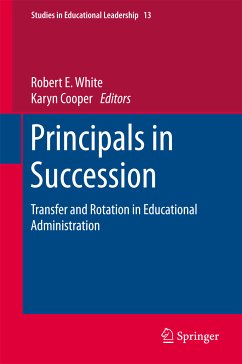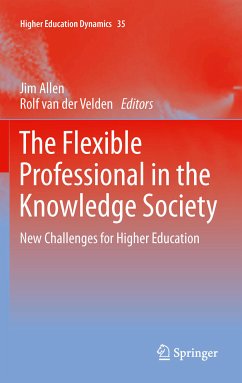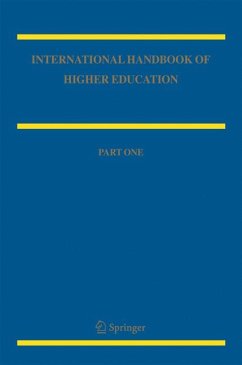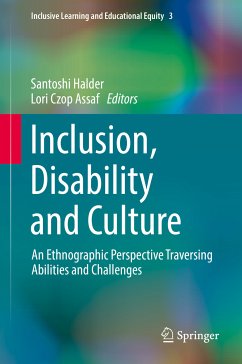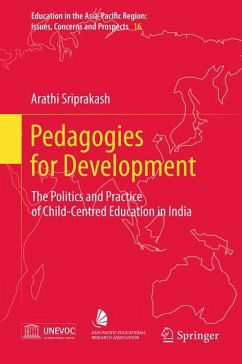
Pedagogies for Development (eBook, PDF)
The Politics and Practice of Child-Centred Education in India
Versandkostenfrei!
Sofort per Download lieferbar
96,95 €
inkl. MwSt.
Weitere Ausgaben:

PAYBACK Punkte
48 °P sammeln!
Pedagogies for Development takes a sociological approach to examine the introduction of child-centred education in contemporary Indian policy and school contexts. It investigates the promise of democratic learning in development discourses to ask how far child-centred models can address poverty and social inequalities in rural Indian communities. Drawing on in-depth ethnographic research conducted in the south Indian state of Karnataka, the book offers a multi-level analysis of international, national and state education practices of pedagogic reform. The book contributes to pressing debates a...
Pedagogies for Development takes a sociological approach to examine the introduction of child-centred education in contemporary Indian policy and school contexts. It investigates the promise of democratic learning in development discourses to ask how far child-centred models can address poverty and social inequalities in rural Indian communities. Drawing on in-depth ethnographic research conducted in the south Indian state of Karnataka, the book offers a multi-level analysis of international, national and state education practices of pedagogic reform. The book contributes to pressing debates about how 'quality' education should be conceptualised and assessed in development contexts, and brings into focus the assumptions which associate schooling to social justice.
Dieser Download kann aus rechtlichen Gründen nur mit Rechnungsadresse in A, B, BG, CY, CZ, D, DK, EW, E, FIN, F, GR, HR, H, IRL, I, LT, L, LR, M, NL, PL, P, R, S, SLO, SK ausgeliefert werden.





